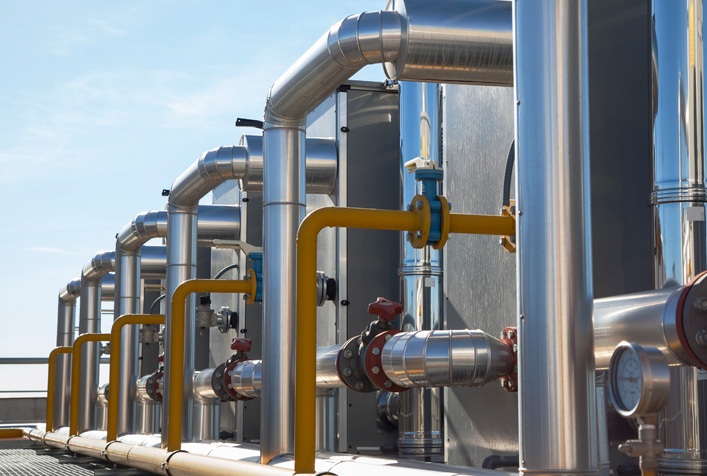University Campus Central Plant Expansion Support

Project Brief
The Challenge
A large private research university in an urban setting wished to expand its central utility plant to increase steam capacity while ensuring optimal energy reliability, cost efficiency, sustainability, and community health. The university sought third-party input toward a choice between two primary options: replacing the existing natural-gas fired boilers with a combined heat and power system or constructing an additional natural gas-fired boiler. The university sought to balance these options based on factors including environmental impact, air quality, regulatory compliance, and community engagement.
ERG's Solution
ERG supported the university in evaluating these choices by performing extensive air modeling, impact assessments, and permitting activities for both alternatives, ultimately assisting in the selection, design, development, and permitting of a boiler expansion project. During the project planning phase, ERG helped the university evaluate the two technology options by conducting air dispersion modeling, assessing air quality impacts, and supporting permitting for both choices. During planning and design, ERG also provided expert technical input to third-party assessments and delivered information comparing energy emissions and costs of different technology options. Subsequently, ERG recommended and facilitated the university's selection of a new boiler, by performing critical tasks, including significant impact level modeling, full National Ambient Air Quality Standards modeling, supplemental air quality index modeling, a human health impacts assessment, and community outreach. ERG’s permitting assistance included Best Available Control Technology evaluation and emissions rate analysis.
Client
Undisclosed university